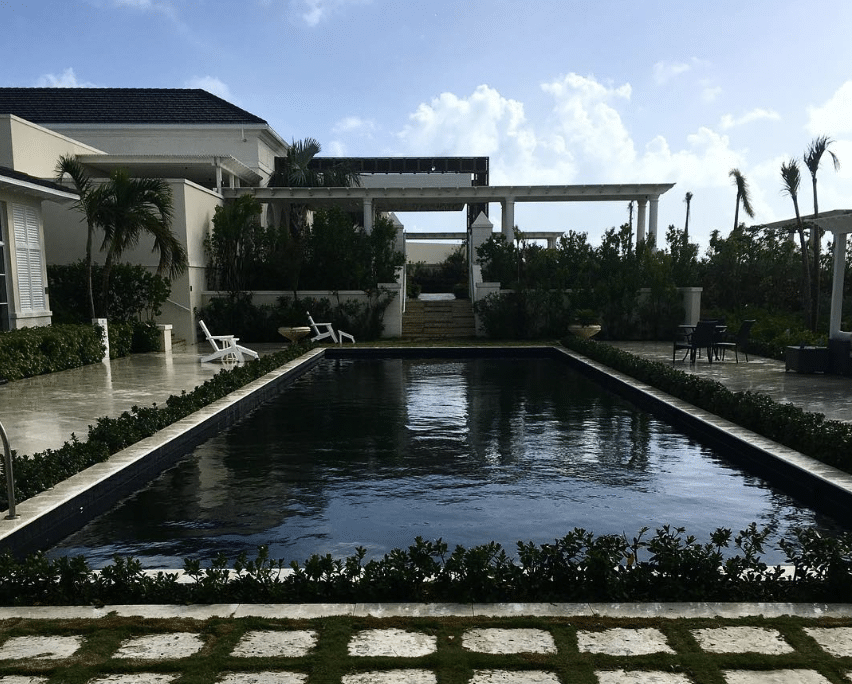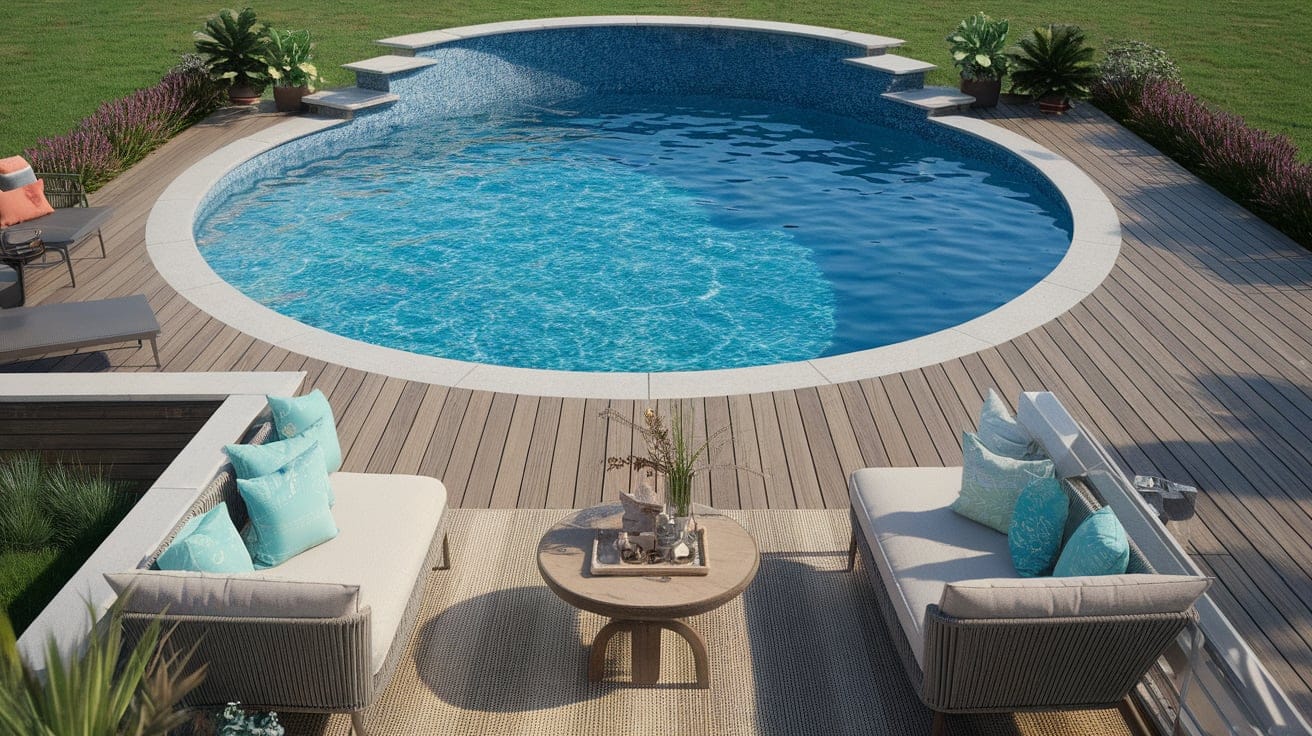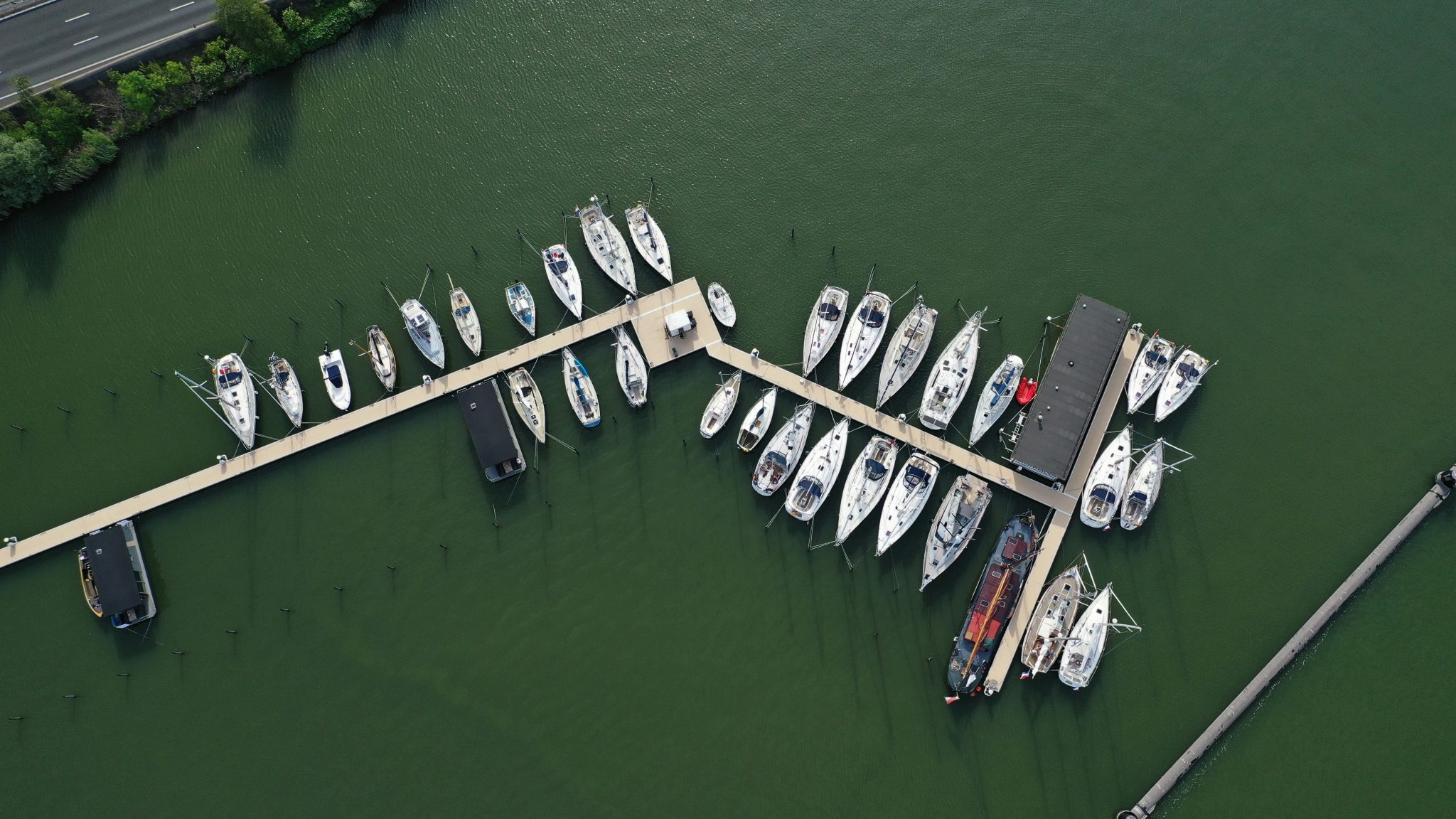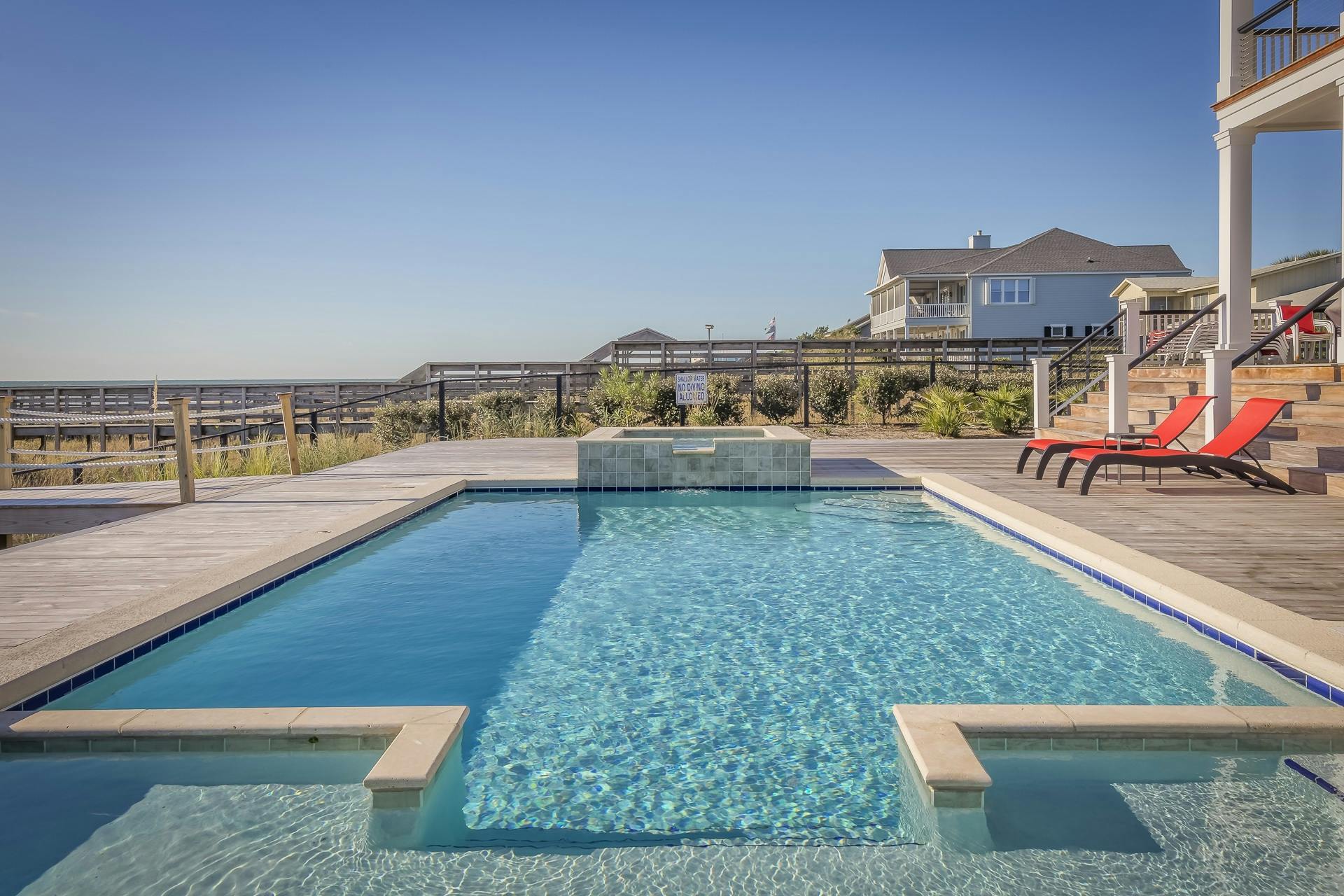Pool Decking Ideas: Choosing The Right Material For Your Space
Creating the perfect poolside experience starts with choosing the right pool decking. The material you select not only influences the aesthetic of your outdoor area but also affects its safety, durability, and overall maintenance.
In this guide, we’ll take a deep dive into some of the most popular pool decking materials available and help you decide which one suits your needs, budget, and lifestyle.
What to Consider When Choosing Pool Decking
When selecting pool decking, it’s important to consider a few key factors:
- Safety: The material should be slip-resistant to prevent accidents, especially around wet areas.
- Durability: It should withstand the harsh Australian weather, including intense heat, heavy rains, and UV exposure.
- Maintenance: Choose a material that matches the time and effort you’re willing to put into upkeep.
- Aesthetic appeal: The decking should complement your pool design and landscaping.
- Budget: Decking materials come in a range of prices, so understanding your budget will help narrow down your choices.
Now, let’s explore some of the top pool decking options available.
1. Timber Decking
Timber decking is a popular choice for pool areas because of its natural look and feel. It’s perfect for creating a warm, rustic environment that blends seamlessly with nature.
Pros:
- Aesthetic Appeal: Timber offers a beautiful, organic look that suits both modern and traditional poolside designs.
- Slip-Resistance: When treated properly, timber decking can provide good traction around the pool, reducing the risk of slipping.
- Customisation: Timber can be stained or painted in a range of colours to match your outdoor decor.
Cons:
- Maintenance: Timber decking requires regular maintenance, including cleaning, sanding, and re-sealing to prevent fading and weather damage.
- Durability: While durable, timber can degrade over time, particularly when exposed to moisture and pool chemicals. It’s essential to choose high-quality, treated wood to prolong its lifespan.
If you’re considering timber, opt for hardwoods like teak or redwood, which are naturally more resistant to the elements.
2. Composite Decking
Composite decking has gained popularity in recent years, offering a more modern alternative to traditional timber. Made from a blend of wood fibres and plastic, composite decking offers a low-maintenance solution that’s both eco-friendly and long-lasting.
Pros:
- Low Maintenance: Composite decking is resistant to rot, fading, and staining, making it ideal for pool areas.
- Durability: It can withstand extreme weather conditions and doesn’t warp or crack like wood.
- Variety: Available in a wide range of colours and textures, composite decking can mimic the look of wood without the high-maintenance requirements.
Cons:
- Heat Retention: Some composite materials can retain heat, making the surface uncomfortable to walk on during hot Australian summers.
- Price: While durable and low-maintenance, composite decking is generally more expensive than timber.
Composite decking is an excellent choice for homeowners looking for a durable, long-lasting, and low-maintenance solution that still offers a wood-like aesthetic.
3. Paving Stones and Tiles
Paving stones and tiles are another popular option for pool decking. These materials can create a clean, sleek, and modern poolside area that is also easy to maintain.
Pros:
- Variety of Styles: Pavers come in many different shapes, sizes, and colours, giving you plenty of options to create your ideal design.
- Durability: Pavers are highly durable and resistant to the harsh Australian climate, making them an excellent choice for poolside areas.
- Slip-Resistance: With the right finish, pavers can offer a slip-resistant surface that’s safe to walk on around the pool.
Cons:
- Installation: Paving stones require a professional installation, and depending on the material, it can be a time-consuming and costly process.
- Maintenance: While low-maintenance, pavers may require occasional cleaning and resealing to keep them looking their best.
Consider natural stone tiles like travertine or limestone, which are especially popular for their luxurious appeal and durability.
4. Concrete Decking
Concrete is one of the most versatile and cost-effective materials for pool decking. With the right finish, it can be moulded into virtually any shape, size, and style to suit your pool area.
Pros:
- Customisable: Concrete can be stamped, stained, or textured to mimic other materials like wood or stone, allowing for endless design possibilities.
- Durability: Concrete is strong, durable, and weather-resistant, making it a long-lasting option for poolside decking.
- Low Maintenance: Concrete requires minimal maintenance, especially if sealed properly.
Cons:
- Heat Retention: Concrete can absorb and retain heat, which may make it uncomfortable to walk on during the summer months.
- Cracking: Over time, concrete can crack if not properly installed or maintained. It’s essential to ensure proper drainage and installation techniques to minimise this risk.
5. Rubber Decking
Rubber decking is an innovative material that’s becoming more common around swimming pools perth, offering excellent safety features alongside an attractive appearance.
Pros:
- Slip-Resistance: Rubber is highly slip-resistant, making it one of the safest pool decking materials.
- Comfort: It provides a soft, cushioned surface, which is especially beneficial for families with children.
- Low Maintenance: Rubber decking requires very little upkeep and is easy to clean.
Cons:
- Appearance: While functional, rubber decking may not offer the same aesthetic appeal as some other materials.
- Cost: Rubber can be more expensive than traditional paving or timber options, especially for larger areas.
Rubber decking is an excellent choice if safety and comfort are your top priorities.
6. Pebblecrete
Pebblecrete, also known as exposed aggregate, is a popular pool decking material that combines cement with small pebbles or stones to create a textured finish.
Pros:
- Aesthetic Appeal: Pebblecrete creates a unique, natural look that’s perfect for both modern and traditional pool designs.
- Slip-Resistance: The textured surface provides excellent grip, making it safe to walk on around the pool.
- Durability: Pebblecrete is highly durable, resistant to the effects of water and chemicals, and can withstand extreme weather conditions.
Cons:
- Hardness: The texture of pebblecrete can be tough on bare feet, especially in hot weather.
- Cost: While durable, pebblecrete can be more expensive to install compared to other decking materials.
Pebblecrete is ideal for homeowners seeking a unique, durable, and slip-resistant surface that can enhance the natural beauty of their pool area.
Final Thoughts
Choosing the right pool decking material is an important decision that will affect the look, feel, and functionality of your outdoor space. Whether you opt for the natural charm of timber, the modern durability of composite, or the timeless elegance of stone, it’s crucial to select a material that meets your needs and budget.
By considering factors like safety, durability, maintenance, and aesthetic appeal, you can find the perfect pool decking material that will not only enhance your pool area but also stand the test of time.







